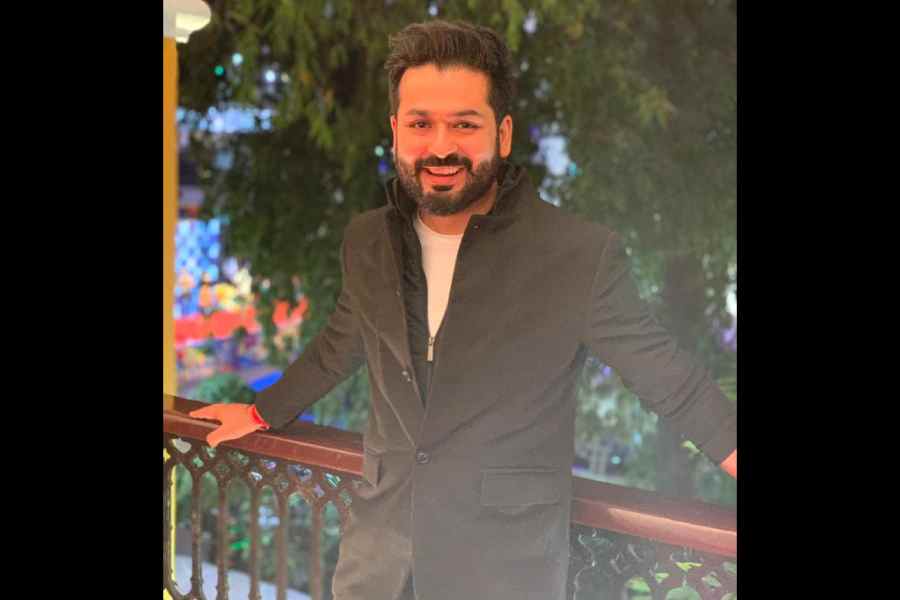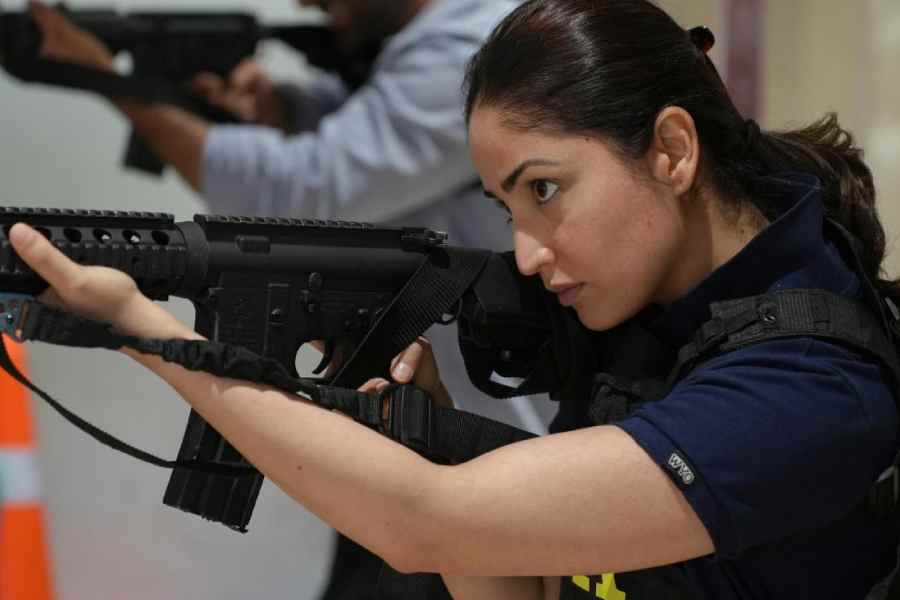Aditya Dhar's directorial debut Uri: The Surgical Strike not only scored hugely at the box office but also won four National Awards, including Best Director for him and Best Actor for Vicky Kaushal.
This Friday, Dhar co-produces and co-writes Article 370, a film that looks at the behind-the-scenes goings-on leading up to the abrogation of Article 370 (that took away Kashmir's special status after 70 years). The film is headlined by his wife Yami Gautam Dhar and the couple have twin reasons to celebrate, given that they are expecting their first child. A t2 chat with Aditya.
What will make Article 370 a different watch?
What will be exciting for the audience is the genre itself. This genre is in a very realistic zone. Hollywood, of course, does it quite often but in India, I can't think of anything which has happened in this genre. What is interesting is that this is an incredible story inspired by true events. As everybody knows, Article 370 was abrogated by the Indian government but nobody knows how it was done. That makes for a very exciting story.
What made you want to make this film?
Being a Kashmiri, this story is very close to my heart. We have seen how certain elements in Kashmir have used Article 370 to their advantage and have created unrest in the state for the longest time. Because I hail from there, I understand the geopolitical aspect. The abrogation of Article 370 was a satisfying moment because it made India one entity.
Before that, Kashmir had a different flag from that of the rest of the country and different rules from what is applied to the rest of India. Certain sections of society were not able to get a government job in Kashmir because of Article 370. There were many other serious issues in Kashmir, which were taken care of once Article 370 was abrogated.
Soon after, I met a journalist friend who narrated certain bits of how Article 370 was abrogated. I thought it was such an extraordinary mission because hundreds of people were doing it without knowing that they were part of a mission as big as this. The whole mission was carried out by a few bureaucrats sitting in the Prime Minister's Office, some intelligence officers in Kashmir and a few Army, CRPF and J&K police personnel were also part of it.
There was a lot of machinery which was involved and it was truly an extraordinary operation because nobody got to know about it till the last moment. It was an operation that took place on a massive scale.
That Yami's character (Zooni) was inspired by a real-life intelligence officer made it even more exciting for us... the stories we got to hear were amazing. We started meeting other journalists, met some historians and also spoke to people in Kashmir. It took us a lot of time to get all the information together and then we started building the story. It was a long process but we knew that we were on the path of making something truly extraordinary.

Aditya Dhar Sourced by The Telegraph
This is a prickly and contentious subject, like most political stories are. Was there a particular approach that you wanted to adopt while telling this story?
In this film, we chronologically tell what happened during that period and how it happened. Who were the people who were involved and what happened behind the scenes — be it what was happening in Delhi before the abrogation or on the ground in Kashmir when the motion was being passed. We have told this story based on some very thorough research and in a factual manner. Based on the material we have got, we are chronologically telling you what happened in those days.
Now in that scenario, if somebody feels that it is a prickly subject, then we can't do anything about it. The whole point is that we are telling you a story without making it look like a documentary and are trying to keep it entertaining as a film. Doing that and also keeping it close to reality is a very, very tough task. But the intention is correct. The intention is that we have to tell what happened in those days most realistically and keep it as genuine as possible. After that, what people think and feel is not something which I can handle and it doesn't even bother me.
If somebody feels that there is an agenda, I would request them to watch the film. If they don't want to watch the film, then you will know that the agenda lies in their head and it has nothing to do with the film.
The same thing also happened with Uri. Without watching the film, a lot of people started commenting that it was a propaganda film. Intense research went into it and whatever facts I got, I presented them in the best visual form and with the best back story of the characters possible. If you feel that there is an agenda in that, then I can't do anything about it.
As a country and as human beings, we need to decide on the merit of a subject rather than what the noise is saying. That can be for anything. It can be for films and in real life. We need to make decisions based on merit rather than preempting things beforehand based on a preconceived notion.
Yami told t2 that Article 370 has been her toughest film yet. Would you agree?
Oh, she is going to surprise everyone! I think what she has done in this film is one of her best-ever performances. She is extraordinary in this film. She will be seen in a new avatar and that will be very exciting for the audience. She has done a brilliant job.
The Bollywood theatrical business is in a very unpredictable state at the moment. As a producer and filmmaker, what is your reading of the current state of the market? Is there a way to sum up what the audience is feeling and expecting at this point?
It is very difficult to pinpoint anything with clarity right now. With the advent of OTT, audiences are not entertainment-starved anymore. There is a lot of quality entertainment out there. One thing that I have always believed in is that a lot depends on the maker's intent. Are you making a project or are you making a film? If I make a 'project', I will get a big hero, lots of money and I will make a film which I will sell on the table and make a profit. Or I could be working on an extraordinary story which is high on drama and content and has everything which will resonate with the audience. And I am putting in my 100 per cent to make that film as genuinely and as correctly as possible. That is my intent. So I always feel that if your intent is correct, you are genuinely striving for excellence and if you have the talent to back it, in all probability you will land in the right place.
A good example of that is 12th Fail. You watch that film and you immediately know that this guy's (director Vidhu Vinod Chopra) intent is correct, his projection is correct. The way everybody has worked on that film is extraordinary. The intent across the board is correct.
So I feel that intent will always have a better chance than a project. And the day there is any lethargy or lack in my intent, it will be the last day I will direct or produce anything. I don't want to make films just for the heck of it. I want to create something which leaves a legacy behind.










